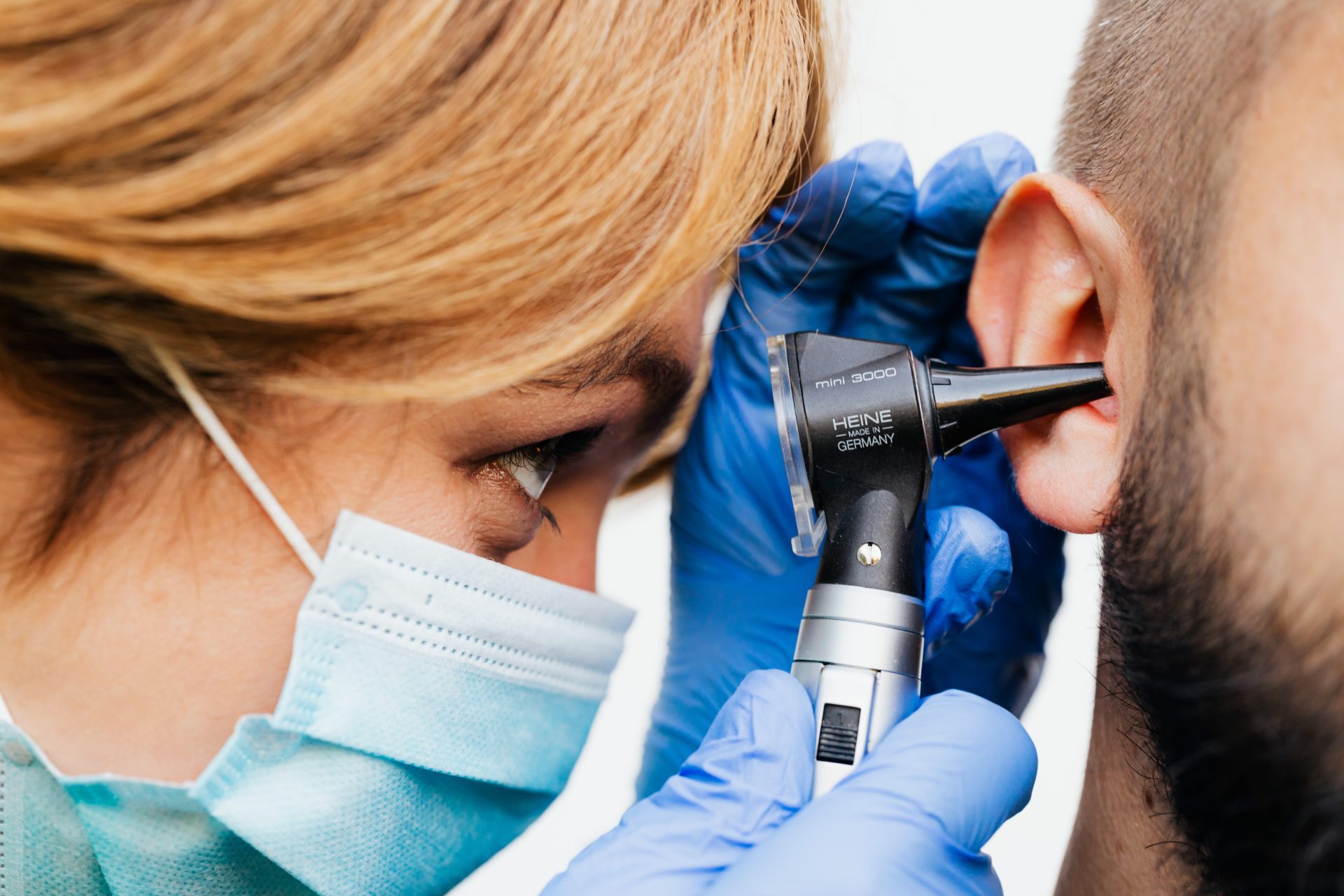Tinnitus is formally known as the “perception of internal noises”. People who often suffer from tinnitus experience a ringing or buzzing noise that others cannot hear. These noises can either affect one or both ears, as well as vary in severity. Some people may hear high pitched sounds whilst others may be lower in frequency.
Some people may experience temporary tinnitus often after being exposed to a loud sound. This could be caused by something like a concert. Temporary tinnitus usually lasts around 16 to 48 hours or in more serious cases a week or two. If you would like to read more about temporary tinnitus click here.
How is it caused?
Tinnitus can be caused by a number of things, the most common being hearing loss. As we grow older hearing loss occurs naturally as the number of hair cells in our ears depletes over time. If you listen to music at a loud volume or expose yourself to loud sounds regularly these cells are more likely to get damaged. By doing this you are more likely to speed up the effects of hearing loss, making yourself more prone to tinnitus. If you are concerned about hearing loss you can read more information in my blog here.
Another cause of tinnitus is ear infections or ear canal blockage. Some common ways of developing ear infections are:
Cotton buds: By cleaning your ears with cotton buds, you risk pushing bacteria further into the ear and causing infections.
Smoking: Smoking affects your nasal passages as well as your throat, which are both linked to the health of your ears.
Putting your fingers in your ears: Your hands touch over 100 foreign objects a day, therefore, placing them in your ears can easily cause infection.
Water in the ears: Water is the perfect environment for bacteria to grow so by not drying your ears properly you can cause infections.
Shampoo, hair spray and hair dye entering the ears: Shampoos as well as other hair products that can enter your ear can cause chemical reactions, leading to infections.
Head or neck injuries: The nerves in these areas are linked to the auditory system, so any injuries may cause tinnitus. This cause is likely to affect just one ear.
Medications: Medications used to treat cancer, depression, and certain types of antibiotics have been linked to causing or worsening tinnitus.
If you would like to read more on how to prevent ear infections click here.

Tinnitus Management
For many people suffering from tinnitus, learning to manage how they cope with their symptoms can provide some much-needed relief. Through having an effective method of managing tinnitus it can make everyday life much easier.
Here is a breathing exercise you can follow to try and calm your tinnitus symptoms:
Breathing exercise
Breathing is one of the easiest ways to relax our bodies. By following this exercise the aim is to relax the body so you do not allow the tinnitus to induce stress. Stress is likely to make you more aware of your tinnitus and disrupt your daily activities. Follow these instructions to use your breathing as a relaxation tool.
Firstly, make sure you are in a quiet environment with your arms by your side and your feet either flat on the floor or laying down.
Begin by breathing in through your nose, hold this breath for a few seconds before breathing back out through your mouth.
Each time you breathe in, try to hold your breath for a little longer each time. Do this until you feel relaxed. Don’t force in too much air, and don’t hold your breath for so long that it becomes uncomfortable.
By repeating this exercise daily you should be able to feel more relaxed throughout everyday life, as well as your tinnitus symptoms slowly becoming more manageable. If you would like to learn more exercises to follow for managing your tinnitus symptoms click here.

Tinnitus Treatment
Although there is no cure for tinnitus, there are some methods of treatment. However, they are also not guaranteed to work. The idea behind any tinnitus treatment is to speed up the process of habituation.
Habituation
Habituation is the process of slowly helping the brain learn to recognise certain signals and ignore them. For example, we do this naturally through wearing jewellery such as a ring. Although we know it is there and can sense the presence of an item on our hand, after some time, although the brain will get signals of this presence we will begin to ignore them. Tinnitus causes a signal to the brain constantly, the act of habituation within any tinnitus treatment is meant to speed up the process of ignoring signals.
Cognitive Behavioural Therapy (CBT)
Tinnitus can put a large strain on your lifestyle and this can become overwhelming.
It is important to acknowledge that CBT is not a cure for tinnitus but simply a way to help individuals reduce the amount of stress it may cause for them. This works by addressing the concept that negative and unrealistic perceptions stop you from adapting to new situations. CBT aims to help combat these thoughts so that you can then learn to live with and adapt to the condition.
CBT is completed with a therapist, and it is recommended to visit them either once per week or fortnightly. During sessions, it is the therapists aim to understand your tinnitus and how it affects you so they can then begin to separate any negative thoughts from the condition. In addition to this, the therapist will also try to replace these thoughts with more positive or realistic thoughts.
Since it is often found that tinnitus patients have negative and unrealistic active thoughts about their condition, a therapist will often use relaxation training alongside imagery techniques to help replace the negative active thoughts with more positive ones. Exposure to difficult situations may also be used to combat any negative thoughts activated by tinnitus. By using these techniques, more positive thoughts are thought to be encouraged when the person actively thinks about their tinnitus.
If you have concerns you may be suffering from tinnitus or would like some assistance in living with this condition, book an appointment here.
